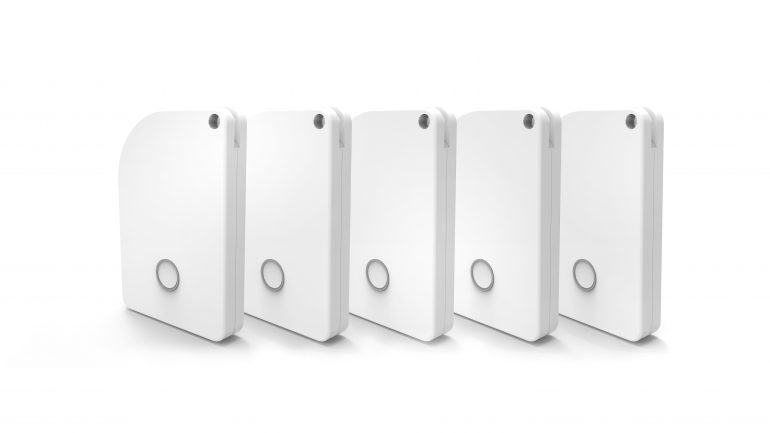When Linquet was looking to launch an updated version of its Bluetooth-enabled smart tracker, founder Pooya Kazerouni had a long list of changes. Most of them had come from directly from customers.
“We learned a lot from our users and customers who provided us with feedback,” Kazerouni told me. “For most people, the battery consumption was really important, being able to replace a battery is really important. Bluetooth range and connectivity is really important. We really went back to the drawing board and redesigned everything from the hardware up.”
“For the other 5% of the time, being able to reach out to your community is drastically helpful.”
Sipping to 34 countries, Linquet 2.0 tracker now features improved battery consumption and longer Bluetooth range, to better notify customers when valuables tagged with a Linquet go out of range from their paired smartphone. Beyond performance, Linquet has also expanded the capabilities of the smart tracker and its software to not only talk to other Linquets when nearby for better tracking, but to support notifications to a network of trusted friends. With Linquet 2.0, the next time Rover escapes from the yard, a notification can automatically be sent to a helpful neighbour.
“We realized that having a community to help you find your stuff is really important, because 95% of the time being notified yourself is really enough, but for the other 5% of the time, being able to reach out to your community is drastically helpful. Through adding that we realized we can enable so much more than an anti-loss solution.”
Kazerouni’s goal is to have Linquet power the nascent sharing economy, which makes sense: being able to safely track and know where something is expands your expectations of what can reasonably be shared. Kazerouni thinks Linquet will have obvious appeal to AirBnB renters, but also to the friendly neighbour loaning out a needed tool.
Because the network effects for Linquet increase with the number of devices in the wild, the company isn’t charging for the hardware. Instead, the company has a three-tiered subscription model, which expands the number of friendly profiles available, and at the high-end offers lifetime device upgrades. The company will also be releasing an API early next year to allow developers to build additional services with Linquet.
“With the Internet of Things and cloud services,” Kazerouni said, “we don’t even know what can be done yet.”

